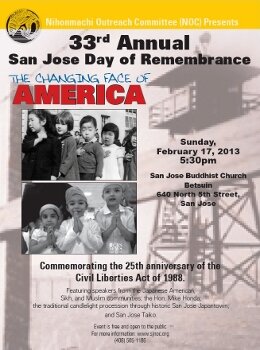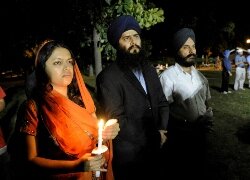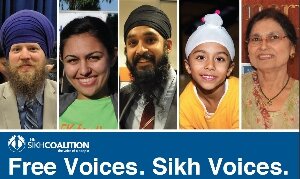By Will Kaku The 39th Annual San Jose Day of Remembrance event commemorates the 77th anniversary of the signing of Executive Order 9066. The order led to the forced removal and incarceration of 120,000 people of Japanese descent during World War II. Hundreds of people will gather together at this annual event not only to remember that great civil liberties tragedy but to also reflect on what that event means to all of us today.The 2019 event carries the theme "#Never Again Is Now". During the past year, the story of Japanese American incarceration has been melded into several big national stories.In June, many Americans were alarmed by the consequences of the government's "Zero-Tolerance" border policy. People were horrified when they saw photos of children in cages and when they heard children crying for their parents who were separately held in other detention centers. In an op-ed in the Washington Post, former First Lady Laura Bush wrote, "These images are eerily reminiscent of the Japanese American internment camps in World War II, now considered to have been one of the most shameful episodes in U.S. history."
The 39th Annual San Jose Day of Remembrance event commemorates the 77th anniversary of the signing of Executive Order 9066. The order led to the forced removal and incarceration of 120,000 people of Japanese descent during World War II. Hundreds of people will gather together at this annual event not only to remember that great civil liberties tragedy but to also reflect on what that event means to all of us today.The 2019 event carries the theme "#Never Again Is Now". During the past year, the story of Japanese American incarceration has been melded into several big national stories.In June, many Americans were alarmed by the consequences of the government's "Zero-Tolerance" border policy. People were horrified when they saw photos of children in cages and when they heard children crying for their parents who were separately held in other detention centers. In an op-ed in the Washington Post, former First Lady Laura Bush wrote, "These images are eerily reminiscent of the Japanese American internment camps in World War II, now considered to have been one of the most shameful episodes in U.S. history." Other prominent Americans also drew stark parallels with the World War II incarceration of Japanese Americans. Actor and activist, George Takei, said, "I cannot for a moment imagine what my childhood would have been like had I been thrown into a camp without my parents. That this is happening today fills me with both rage and grief: rage toward a failed political leadership who appear to have lost even their most basic humanity, and a profound grief for the families affected."Another big national story materialized a few weeks later when the United States Supreme Court reversed a series of lower court decisions by upholding the third revision of the Trump travel ban. The decision in Trump v. Hawaii also referred to Japanese American WW II incarceration. Justice Sonia Sotomayor scorching dissent invoked the 1944 Supreme Court case, Korematsu v. United States:
Other prominent Americans also drew stark parallels with the World War II incarceration of Japanese Americans. Actor and activist, George Takei, said, "I cannot for a moment imagine what my childhood would have been like had I been thrown into a camp without my parents. That this is happening today fills me with both rage and grief: rage toward a failed political leadership who appear to have lost even their most basic humanity, and a profound grief for the families affected."Another big national story materialized a few weeks later when the United States Supreme Court reversed a series of lower court decisions by upholding the third revision of the Trump travel ban. The decision in Trump v. Hawaii also referred to Japanese American WW II incarceration. Justice Sonia Sotomayor scorching dissent invoked the 1944 Supreme Court case, Korematsu v. United States: "By blindly accepting the Government’s misguided invitation to sanction a discriminatory policy motivated by animosity toward a disfavored group, all in the name of a superficial claim of national security, the Court redeploys the same dangerous logic underlying Korematsu and merely replaces one “gravely wrong” decision with another."Although the Court's five majority justices disagreed with Justice Sotomayor, the majority opinion stated that the Court now had the opportunity to "express what is already obvious: Korematsu was gravely wrong the day it was decided, has been overruled in the court of history, and—to be clear—has no place in law under the Constitution.”The San Jose Day of Remembrance event was started 39 years ago by local activists to bring awareness of the United States government's actions to forcibly remove and disrupt the Japanese American community. The organizers, the Nihomachi Outreach Committee (NOC), also wanted to use the event to mobilize the community in support of a formal apology by the United States government. This apology was eventually given as a part of the Civil Liberties Act of 1988.As recipients of an official apology from the United States government, many Japanese Americans, as well as other Americans, feel that it is their responsibility to defend their friends, neighbors, classmates, colleagues, and other communities when they become the target of discrimination. During these tumultuous and divisive times, ordinary people are rising up within their own communities to effect positive change. This spirit of community activism is captured in the annual San Jose Day of Remembrance event.
"By blindly accepting the Government’s misguided invitation to sanction a discriminatory policy motivated by animosity toward a disfavored group, all in the name of a superficial claim of national security, the Court redeploys the same dangerous logic underlying Korematsu and merely replaces one “gravely wrong” decision with another."Although the Court's five majority justices disagreed with Justice Sotomayor, the majority opinion stated that the Court now had the opportunity to "express what is already obvious: Korematsu was gravely wrong the day it was decided, has been overruled in the court of history, and—to be clear—has no place in law under the Constitution.”The San Jose Day of Remembrance event was started 39 years ago by local activists to bring awareness of the United States government's actions to forcibly remove and disrupt the Japanese American community. The organizers, the Nihomachi Outreach Committee (NOC), also wanted to use the event to mobilize the community in support of a formal apology by the United States government. This apology was eventually given as a part of the Civil Liberties Act of 1988.As recipients of an official apology from the United States government, many Japanese Americans, as well as other Americans, feel that it is their responsibility to defend their friends, neighbors, classmates, colleagues, and other communities when they become the target of discrimination. During these tumultuous and divisive times, ordinary people are rising up within their own communities to effect positive change. This spirit of community activism is captured in the annual San Jose Day of Remembrance event.
San Jose Day of RemembranceSunday, February 17, 20195:30 p.m. - 7:30 p.m. San Jose Buddhist Church Betsuin640 North Fifth StreetSan Jose, CA
Visit www.sjnoc.org for more information. The 39th Day of Remembrance features Don Tamaki, an attorney from the Korematsu Coram Nobis legal team; Teresa Castellanos, a representative from the County of Santa Clara Office of Immigrant Relations; Chizu Omori, an activist, former internee, and co-producer of the film, "Rabbit in the Moon"; a special performance by internationally acclaimed San Jose Taiko, and the traditional candlelight procession through historic San Jose Japantown.
The 39th Day of Remembrance features Don Tamaki, an attorney from the Korematsu Coram Nobis legal team; Teresa Castellanos, a representative from the County of Santa Clara Office of Immigrant Relations; Chizu Omori, an activist, former internee, and co-producer of the film, "Rabbit in the Moon"; a special performance by internationally acclaimed San Jose Taiko, and the traditional candlelight procession through historic San Jose Japantown. 











